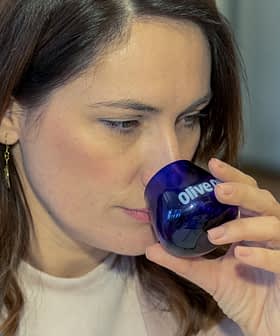STATEMENT ISSUED BY THE CHEMISTRY EXPERT GROUP OF THE INTERNATIONAL OLIVE COUNCIL ON THE REPORT PRODUCED BY THE UC DAVIS OLIVE CENTRE
A report issued by the UC Davis laboratory questioning the trueness-to-grade of extra virgin olive oil imported into the United States has been published recently in various news media. The IOC Chemistry Expert Group have discussed this subject at their latest meeting.
The Group is made up of expert chemists from almost all the IOC member and non-member countries (Australia, Canada and the United States) and international organisations (AOCS, CODEX and ISO). The main aim of the group is to study testing methods and revise them when necessary to determine the quality and control the purity of olive oils and olive-pomace oils. Methods are constantly being improved to adapt them to industry needs and technological developments.
IOC standards are revised in the light of scientific advances that help to make testing methods more accurate, or of technological and commercial developments. Their aims are to enhance and control quality, as well as to ensure transparency on the international market for olive oils, olive-pomace oils and table olives, and to promote their consumption.
Considering the report published by UC Davis, there are several points this Expert Group wishes to clarify.
The results reported are for only 52 samples of 19 brands. This is not statistically significant of the olive oil imported into the USA, because samples traded in three cities of California are not representative of the whole olive oil market in the USA; therefore, the claim questioning the trueness-to-grade of the extra virgin olive oil imported into the USA is not realistic.
There are no details of storage conditions during shipping or time of testing. Without this information it is impossible to consider the results to be reliable. In addition, the recommendations stated on the product labels indicate that the oils must be kept in a cool dry place and must not be exposed to direct light in order to comply with their assigned grade classification during their shelf life. We do not know if the non-compliance with the standards was due to the original characteristics of the oils or to the storage conditions during trading.
The IOC trade standard is under constant supervision by the IOC Chemistry Expert Group and contains all the necessary methods to assess the quality and purity of olive oil. Hence, it was not necessary to apply the non-official methods cited in the report.
Most of the samples were misclassified by the sensory analysis. The official method of the IOC was used, but was not applied according to the standardised procedure described in the method. When the grade assigned by the sensory analysis does not match the grade stated on the label classification, the procedure requires a second analysis to be performed by another IOC recognised panel. This was not done in the UC Davis study.
The UC Davis study places particular emphasis on the application of non-official methods and gives the impression that the IOC methods are not sufficient to assess the quality and purity of olive oil. We would like to stress that some of the methods used in this study are not IOC methods, even though IOC methods are available (polyphenols and TAG) to assess the same parameters.
It is also important to point out that the IOC does have an official method to detect low quality oils or the addition of soft refined oils obtained from low quality oils (alkyl esters of fatty acids). Instead, the study used non-official methods, – DAGs ‑and pyropheophytine – that had already been studied by the IOC Chemistry Expert Group, which concluded that the scope of these methods could not include the assessment of the quality and purity of olive oil because these compounds change dynamically during the shelf life of the oil.
In this context, the UC Davis report claims that cheap refined oil was added to the oils; however, all the parameters (stigmastadienes and sterol composition) that detect the addition of this type of oil were within the limits. Consequently, they cannot conclude that refined oils were added.
As the IOC Chemistry Expert Group, we are very concerned about the final recommendations of the study advocating the implementation of methods that have not been proven to have any relationship with the quality or purity of olive oils.
The Group wishes to end by saying it is ready and willing to discuss any new input to ensure the quality and authenticity of olive oil.
Madrid (Spain), 8 October 2010








